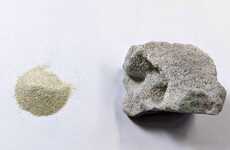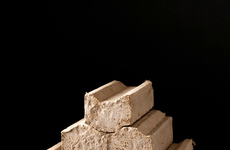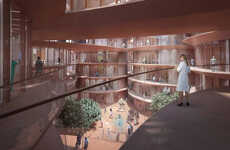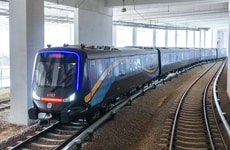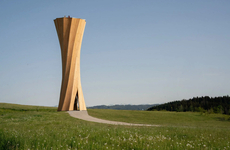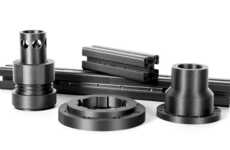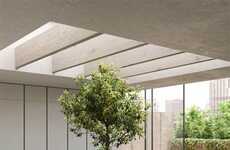
German Researchers Develop the First Carbon Concrete Building
Francesca Mercurio — August 3, 2021 — Eco
A collaborative effort between researchers at the Technical University of Dresden and German architecture firm Henn has created a building that is reinforced with carbon concrete. The building is called 'The Cube' and is the world's first structure made of carbon concrete.
This new type of concrete is equally as strong as concrete reinforced with steel, however, requires less material. Researchers have developed a carbon fiber yarn using a thermal decomposition process called pyrolysis. These carbon fiber yarns create a mesh that is rust-proof and light - unlike regular steel. Thus, creating a type of concrete that has is light and has a long lifespan. The design of the building was informed by the lightweight and flexible properties of carbon fiber. Researchers are currently exploring ways to create carbon fiber in a sustainable manner.
Image Credit: Henn Architekten
This new type of concrete is equally as strong as concrete reinforced with steel, however, requires less material. Researchers have developed a carbon fiber yarn using a thermal decomposition process called pyrolysis. These carbon fiber yarns create a mesh that is rust-proof and light - unlike regular steel. Thus, creating a type of concrete that has is light and has a long lifespan. The design of the building was informed by the lightweight and flexible properties of carbon fiber. Researchers are currently exploring ways to create carbon fiber in a sustainable manner.
Image Credit: Henn Architekten
Trend Themes
1. Carbon Concrete Reinforcement - The use of carbon fiber as a reinforcement for concrete presents an opportunity to develop lighter and longer-lasting structures.
2. Sustainable Carbon Fiber Production - Developing sustainable methods for creating carbon fiber yarns can lead to environmental benefits and cost savings in various industries.
3. Lightweight Building Design - Using carbon concrete to create lighter buildings can lead to increased efficiency in building construction and transportation costs.
Industry Implications
1. Architecture and Construction - The use of carbon concrete in building projects opens up opportunities for designs that are stronger, lighter, and longer-lasting.
2. Manufacturing - Carbon fiber production has the potential to transform various manufacturing industries such as aerospace, automotive, and sports equipment.
3. Infrastructure and Transportation - The use of lightweight carbon concrete can lead to reduced transportation and installation costs for infrastructure projects such as bridges and highways.
6
Score
Popularity
Activity
Freshness


